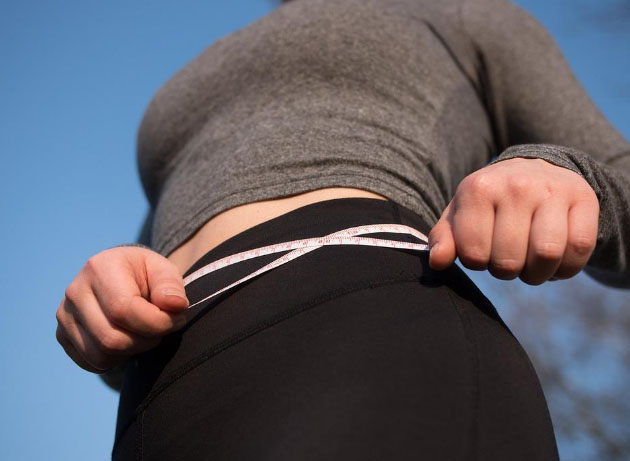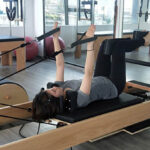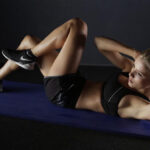Why Does My Fat Itch When I Exercise – Common Causes

Exercise can have negative effects beyond just physical improvement and weight loss. You might occasionally get a case of itchy legs, numb feet, a sleepy butt, or the dreaded runners’ stomach.
What Is An Itch?
Pruritus also referred to as an itch, is a generalized sensation brought on by the irritability of skin cells or nerve cells connected to the skin. The sensation is created when proprioceptors, which are nerve endings, are stimulated by chemicals, heat, temperature, or the body’s own immune response.
The scratching or rubbing reflex is triggered when proprioceptor stimulation sends signals to the brain and spinal cord. Scratching interferes with these nerve signals, providing momentary relief, but it also serves as a warning sign for a physically unsound condition.
Physical signs like a rash or hives might or might not be present along with pruritus. A specific area may only experience localized itching, or the entire body may experience generalized itching.
What is Histamine?
Local vasodilator histamine is frequently released in conjunction with an allergic reaction. Itching and inflammation could be the symptoms of this. However, according to a 2017 review of the literature, exercise may promote the release of histamine to stave off fatigue.
Your blood vessels enlarge due to histamine, which causes you to feel like your fat is itching when you exercise. The general feeling of itchiness is caused by an increase in histamine production.
What Causes Itching?
If there isn’t any mold or mildew on your neglected workout attire, the itching is probably caused by a histamine reaction brought on by exercise. The theory states that when blood vessels swell following a period of relative inactivity, the nearby nerves, unaccustomed to the phenomenon, mistakenly interpret the swelling as itching.
Common causes for pruritus include:
- Allergies
- Autoimmune disorders, such as psoriasis and lupus
- Drug reactions
- Internal diseases, such as kidney failure, cirrhosis, or leukemia
- Infections, such as chickenpox, scabies, or measles
- Nerve-related disorders, such as shingles or diabetes
- Pregnancy
- Skin conditions, such as eczema or xerosis (dry skin)
Why Does My Fat Itch When I Workout?

Your heart pumps more blood to the muscles you are using when you exercise, such as your chest when bench pressing or your thighs when sprinting, increasing your blood flow and heart rate.
Your brain interprets these messages as an itch. The only thing you can do to lessen the itching is to continue with your exercise routine. If you regularly exercise, your brain becomes accustomed to the signals and starts to ignore them.
Your capillaries may enlarge and release the chemical histamine as a result, pushing them outward and turning on the nearby nerve cells that communicate with your brain. Your cells may also release other chemicals as a result.
These signals are interpreted by your brain as an itching sensation. During exercise, the blood vessels widen in order to transport more nutrients and oxygen to the working muscles and remove wastes and carbon dioxide.
In addition, certain exercises, like running or cycling, maybe cause of your fat itch. Due to the possibility of your skin rubbing against objects, your clothing, or your own skin during these exercises, this is.
The cause of itching may also be frictional irritation, depending on the type of exercise you are doing. This is referred to as intertrigo in medical terminology. It is a skin rash that is red and itchy and is brought on by friction between the skin.
Itchy skin can result from bacterial and fungal infections, which can be brought on by excessive sweating and exercise.
You should seek medical advice in this situation so that your doctor can prescribe the best medication for your skin’s recovery.
Read More:What Happens To Your Body After A Massage – Tips and Facts
How Can I Stop Getting Fat Itches While Working Out?
There are many reasons why you might develop itchy, red hives on your skin. Cholinergic urticaria (CU) are those that appear when you’re hot, anxious, or sweaty from working out. Nerve cells in your sweat glands are to blame for them. As your body temperature rises, your skin responds to the heat by perspiring.
Establishing a regular workout schedule that begins with a low level of intensity is the simplest method for avoiding itching fat while exercising. Regular exercise increases the amount of blood that flows through your blood vessels. Your brain eventually becomes accustomed to the nerve signals and ignores them.
Your body adapts to regular exercise, and the itching eventually goes away. Additionally, avoid taking long breaks from exercising because the itching might return after such a break.
To counteract the impact of histamine production, you might try taking an antihistamine before working out. Avoid eating certain foods that could make you itchy or cause allergies.
Laundry detergents made for those with sensitive skin must be used by people with that skin type. To reduce sweat on the skin, exercise attire made of moisture-absorbing materials should be worn. Before exercising, people with extremely dry skin should apply moisturizer.
Avoid the sun, and only exercise during the coolest parts of the day. Shower in cool or warm water as opposed to hot water, which could dry out your skin and irritate it.
When You Lose weight, Can You Get Itchy Again?
Even though itching fat while exercising can be uncomfortable and even annoying, it is not a serious problem. Typically, it can cause allergic reactions or itchiness on the stomach and legs. Nevertheless, it can manifest itself anywhere on the body. These amateurs with typical sedentary lifestyles or those who start exercising again after a long break are more likely to experience this itching sensation.
While working out, you should pace yourself and take regular breaks. As soon as your symptoms start, stop exercising. Usually harmless, runner’s itch goes away on its own over time.
If you experience intense fat itching that doesn’t go away, it’s advised to consult your doctor. Or if the itching is accompanied by other symptoms like wheezing, dizziness, or difficulty breathing. Exercise-induced urticaria is a potentially serious condition.
Why Do I Itch After a Massage?
Pulverized nuts or ingredients derived from trees are found in many massage oils and lotions. Patients who are allergic to these substances run the risk of having a negative reaction. The fabric softeners in linens, the scents or chemicals in sanitizing solutions used to clean tables and equipment, the herbal preparations used during massages, and dyes or chemicals in lotions are some other typical allergens in products related to massage. Patients who are allergic to fragrances may also experience an allergic reaction when they use candles or incense in the massage room, but this usually causes respiratory symptoms rather than itchy skin.
Determining the issue and removing it from the massage environment is essential if your itching is brought on by an allergic reaction. In order for the restriction to be remembered, speak with your massage therapist and request that a note is made on your records.
As the tight muscles relax and stop sending nerve impulses that are translated into itching, the itching that is the result of referred sensation from nervous and muscular causes will decrease and disappear. Cold therapy may offer short-term relief until the patient has had enough massage therapy to keep the muscles loose.
As muscles become accustomed to stimulation and stop reacting by causing extreme increases in blood flow and the resulting pressure on nerve receptors, circulating-related itching gradually gets less intense over time.
Conclusion
It is unpleasant to experience your fat itching while exercising. But there is no need to worry because it only happens occasionally. You can stop itching fat by exercising frequently, avoiding triggers, and taking antihistamines before working out. If you believe your symptoms to be more serious and the treatments you’ve tried aren’t working, it is best to call your doctor.
*Find More Muscle Relaxation Methods Here!
- How to Relax Your Tight Sphincter Muscle with Useful Tips
- How Often Should I Relax My Hair & How to Relax Hair
- How to Have a Relaxing Weekend – Enjoy Yourself
- How Long Do Muscle Relaxers Stay in Your System
- Do Muscle Relaxers Cause Weight Gain – Muscle Relaxers Side Effects
- How to Reduce Your Tongue Tension – Simple Exercises
- How to Relax During Sports – Simple Sport Psychology Techniques
- How to Relax Your Facial Muscles in Easy Ways
- How to Relax Chest Muscles After Breast Augmentation?
- Can a Chiropractor Prescribe Muscle Relaxers?
- Why Is My Waist Turning Bigger With Exercise?
- How Does Visualization Promote Relaxation and Stress Reduction?
- 5 Reasons Entrepreneurs Are Uncomfortable During Vacations
- How Might Regular Cardiorespiratory Exercise Affect Hypertension?
- How to Relax Throat Muscles Anxiety?
- How to Relax Your Jaw – The Best Ways to Relax Your Jaw









